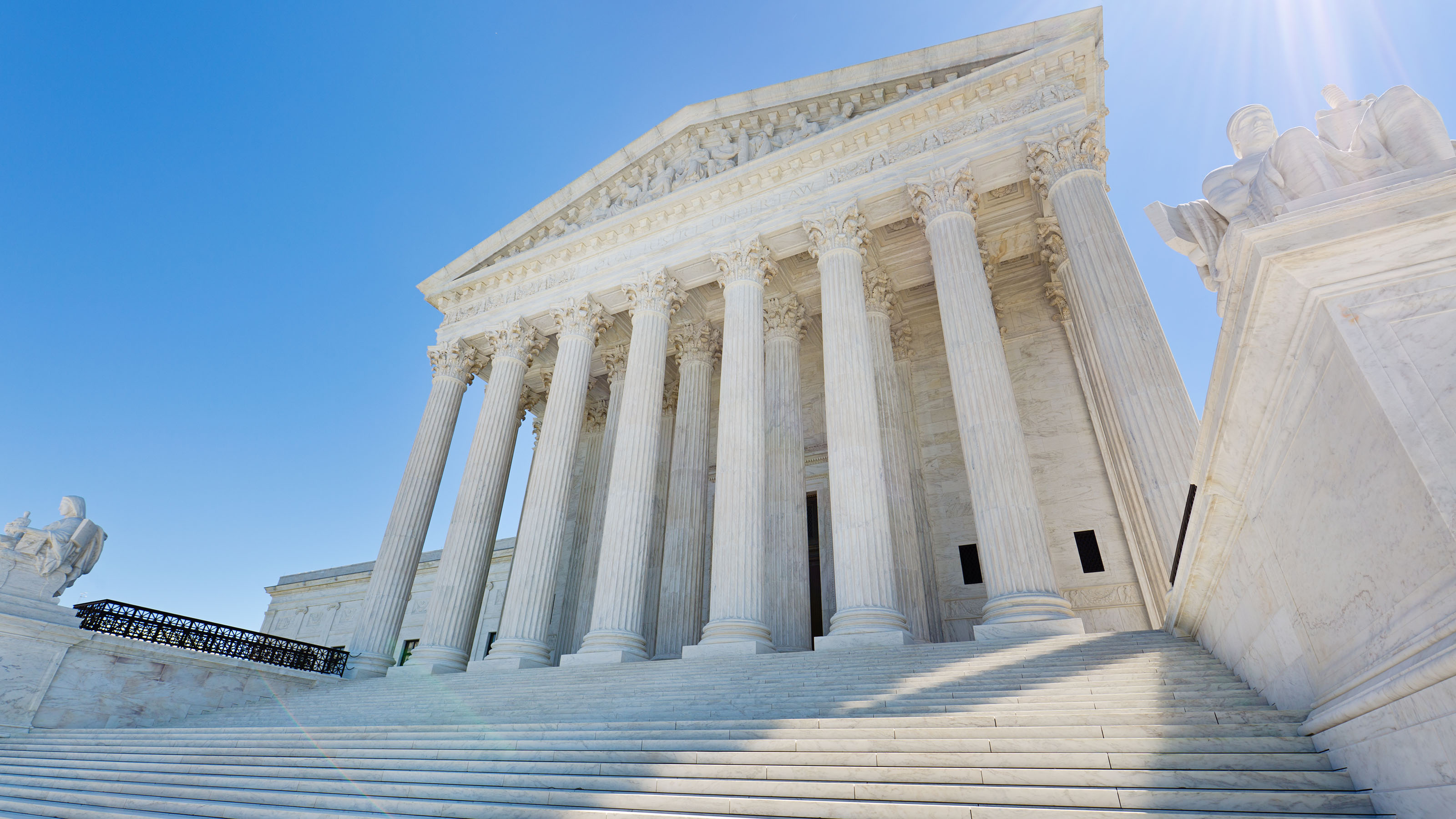A Health Care Temptation to Avoid
It's understandable that the Obama administration and some Democrats find the idea of using a parliamentary tactic to try to push a health care reform bill through Congress nearly irresistible.
Profit and prosper with the best of Kiplinger's advice on investing, taxes, retirement, personal finance and much more. Delivered daily. Enter your email in the box and click Sign Me Up.
You are now subscribed
Your newsletter sign-up was successful
Want to add more newsletters?

Delivered daily
Kiplinger Today
Profit and prosper with the best of Kiplinger's advice on investing, taxes, retirement, personal finance and much more delivered daily. Smart money moves start here.

Sent five days a week
Kiplinger A Step Ahead
Get practical help to make better financial decisions in your everyday life, from spending to savings on top deals.

Delivered daily
Kiplinger Closing Bell
Get today's biggest financial and investing headlines delivered to your inbox every day the U.S. stock market is open.

Sent twice a week
Kiplinger Adviser Intel
Financial pros across the country share best practices and fresh tactics to preserve and grow your wealth.

Delivered weekly
Kiplinger Tax Tips
Trim your federal and state tax bills with practical tax-planning and tax-cutting strategies.

Sent twice a week
Kiplinger Retirement Tips
Your twice-a-week guide to planning and enjoying a financially secure and richly rewarding retirement

Sent bimonthly.
Kiplinger Adviser Angle
Insights for advisers, wealth managers and other financial professionals.

Sent twice a week
Kiplinger Investing Weekly
Your twice-a-week roundup of promising stocks, funds, companies and industries you should consider, ones you should avoid, and why.

Sent weekly for six weeks
Kiplinger Invest for Retirement
Your step-by-step six-part series on how to invest for retirement, from devising a successful strategy to exactly which investments to choose.
It's understandable that the Obama administration and some Democrats find the idea of using a parliamentary tactic to try to push a health care reform bill through Congress nearly irresistible. Using the peculiar budget device known as "reconciliation" means they would need only a simple majority in the Senate -- rather than the filibuster proof 60 needed in most cases. And it would be perfectly fitting since the same Republicans who are screaming "foul" about the tactic now had no problem using it in 2001 and 2003 to pass the Bush tax cuts that most Democrats opposed.
But it's a bad idea that could poison ties with Republicans, including many of those willing to work with Democrats on health care and other issues, and potentially produce a bad law.
Perhaps the strongest argument against using reconciliation is the obverse of the only reason to use it -- requiring that a health reform plan have broad support. When it comes to legislation of such significance every effort should be made to build a broad consensus. And while many Republicans may be crying crocodile tears, simply using a tactic because the other guys did it is playground logic, not legislating. Beyond that, it borders on arrogance to spurn the support and ideas of Republicans who have worked on health care issues for years. Sen. Bob Bennett of Utah, for example, has drafted a bipartisan bill with Sen. Ron Wyden, D-Ore., that could be drawn on for reform legislation. For the record, Bennett says using reconciliation would "sour" relations.
From just $107.88 $24.99 for Kiplinger Personal Finance
Become a smarter, better informed investor. Subscribe from just $107.88 $24.99, plus get up to 4 Special Issues

Sign up for Kiplinger’s Free Newsletters
Profit and prosper with the best of expert advice on investing, taxes, retirement, personal finance and more - straight to your e-mail.
Profit and prosper with the best of expert advice - straight to your e-mail.
If reconciliation were used as the vehicle for a health bill, it would only be authorized for the life of the budget -- 10 years. That is why many of Bush's tax cuts are expiring next year. That would be a terrible constraint on a measure that is supposed to change the shape of health care reform for decades to come.
Fortunately, Senate Democrats seem far more leery of the prospect than those in the House. The Senate Budget Committee hasn't included it in the early drafts of the budget, and several influential Democratic senators flatly object to including health reform under reconciliation.
That said, it's easy to see why Obama and the Democrats want don't want to take reconciliation off the table just yet. The threat of using it if Republicans refuse to engage on health care can be a useful bargaining chip. And keeping the option on the table also underscores the central message that Obama wants to send while Congress works on the budget -- any number of things can be modified or cut, but not health care.
Profit and prosper with the best of Kiplinger's advice on investing, taxes, retirement, personal finance and much more. Delivered daily. Enter your email in the box and click Sign Me Up.
-
 How Much It Costs to Host a Super Bowl Party in 2026
How Much It Costs to Host a Super Bowl Party in 2026Hosting a Super Bowl party in 2026 could cost you. Here's a breakdown of food, drink and entertainment costs — plus ways to save.
-
 3 Reasons to Use a 5-Year CD As You Approach Retirement
3 Reasons to Use a 5-Year CD As You Approach RetirementA five-year CD can help you reach other milestones as you approach retirement.
-
 Your Adult Kids Are Doing Fine. Is It Time To Spend Some of Their Inheritance?
Your Adult Kids Are Doing Fine. Is It Time To Spend Some of Their Inheritance?If your kids are successful, do they need an inheritance? Ask yourself these four questions before passing down another dollar.
-
 Is a New $25,000 Health Care Tax Deduction Coming in 2026?
Is a New $25,000 Health Care Tax Deduction Coming in 2026?Tax Policy A proposal from GOP Sen. Josh Hawley adds to the chatter about health care affordability.
-
 Money for Your Kids? Three Ways Trump's ‘Big Beautiful Bill’ Impacts Your Child's Finances
Money for Your Kids? Three Ways Trump's ‘Big Beautiful Bill’ Impacts Your Child's FinancesTax Tips The Trump tax bill could help your child with future education and homebuying costs. Here’s how.
-
 Key 2025 Tax Changes for Parents in Trump's Megabill
Key 2025 Tax Changes for Parents in Trump's MegabillTax Changes Are you a parent? The so-called ‘One Big Beautiful Bill’ (OBBB) impacts several key tax incentives that can affect your family this year and beyond.
-
 Will EVs Drive the Vote in Election 2024 Swing States?
Will EVs Drive the Vote in Election 2024 Swing States?Tax Credits Electric vehicle tax credits have somehow become controversial. So car buyer attitudes in swing states might make a difference.
-
 How Four Recent Supreme Court Rulings Impact Your Money
How Four Recent Supreme Court Rulings Impact Your MoneySupreme Court Some U.S. Supreme Court decisions could affect your finances. Here’s what you need to know.
-
 Are Student Loans Being Forgiven or Not?
Are Student Loans Being Forgiven or Not?Student Loans The House and Senate voted to repeal President Biden’s student loan forgiveness plan, but does it even matter?
-
 Etsy, eBay, PayPal Want IRS 1099-K Relief for Online Sellers
Etsy, eBay, PayPal Want IRS 1099-K Relief for Online SellersIncome Tax Companies like eBay, Etsy, and PayPal want Congress to raise the $600 reporting threshold for IRS Form 1099-K to give relief to millions of sellers who use their sites.
-
 Student Loan Forgiveness Blocked For Now Due to Court Rulings
Student Loan Forgiveness Blocked For Now Due to Court RulingsBiden's student loan debt forgiveness program is on hold until the U.S. Supreme Court weighs in.